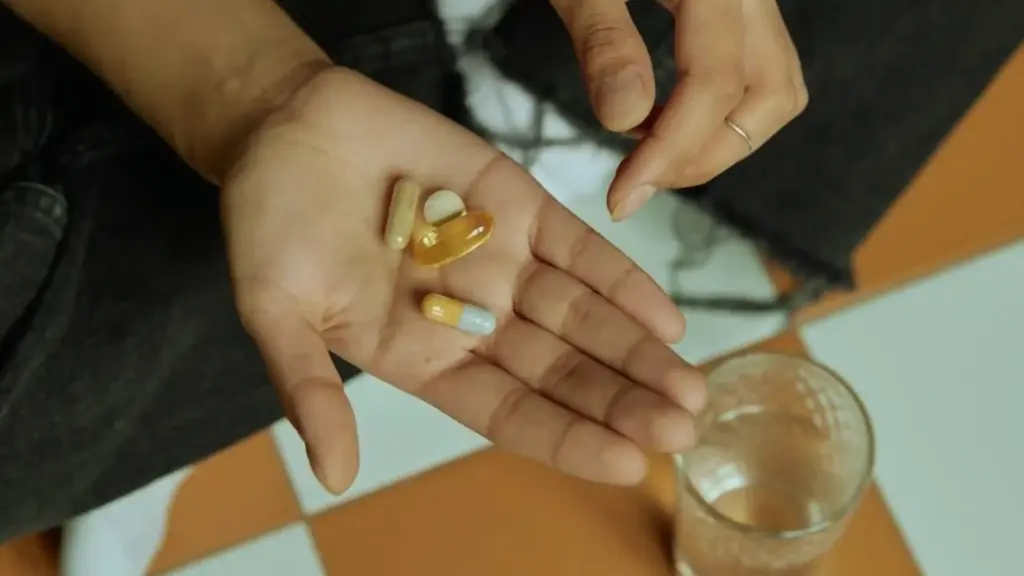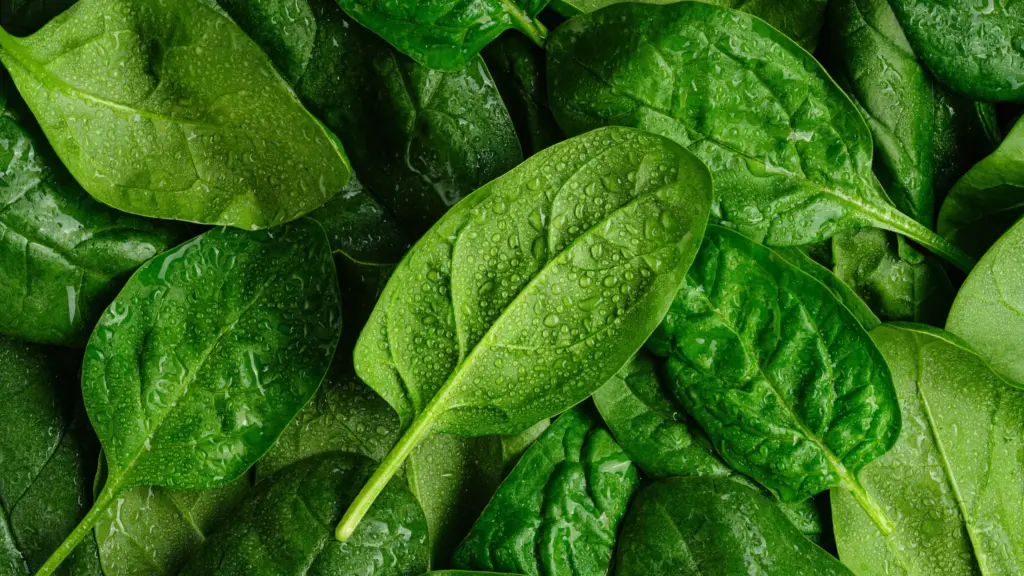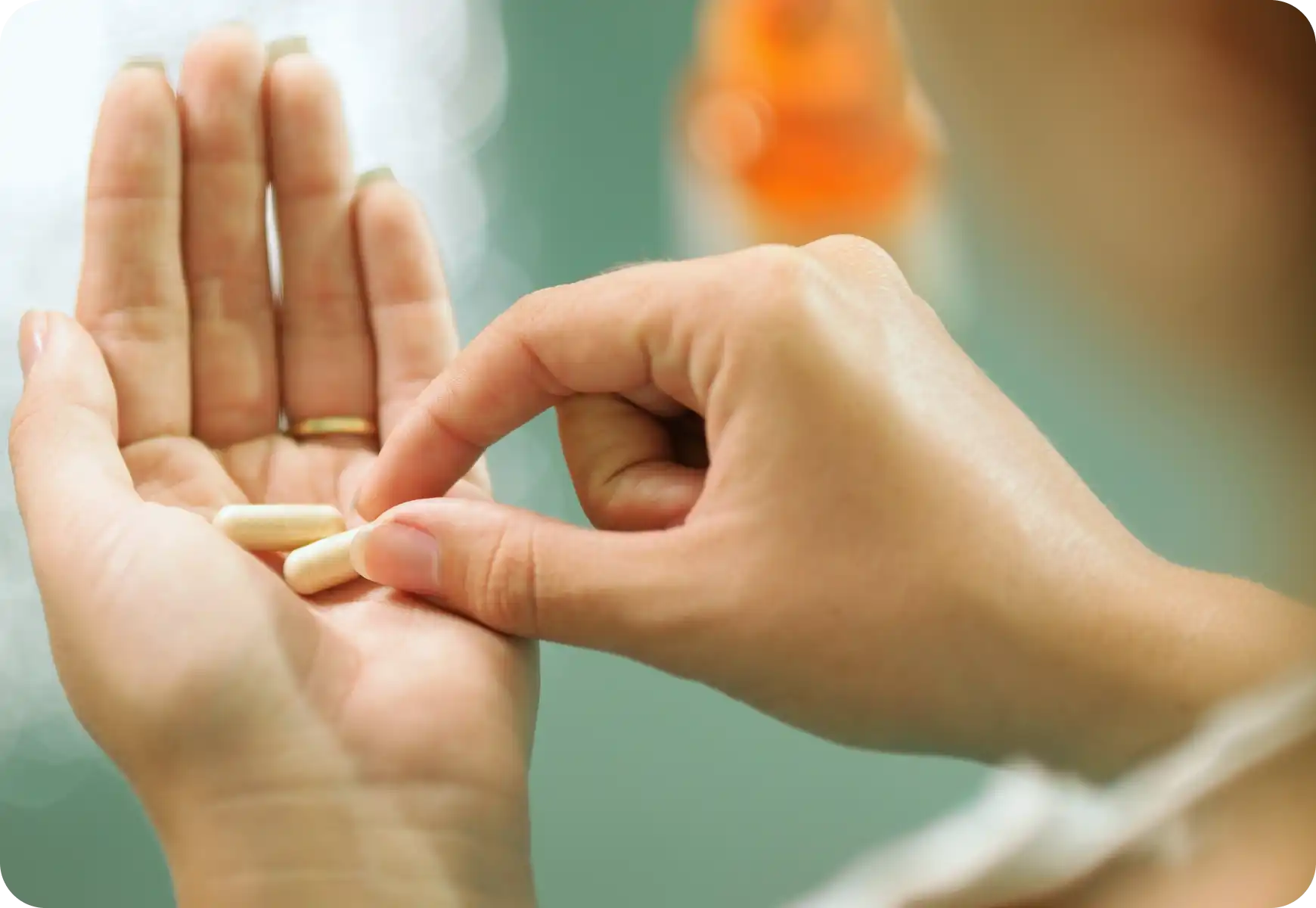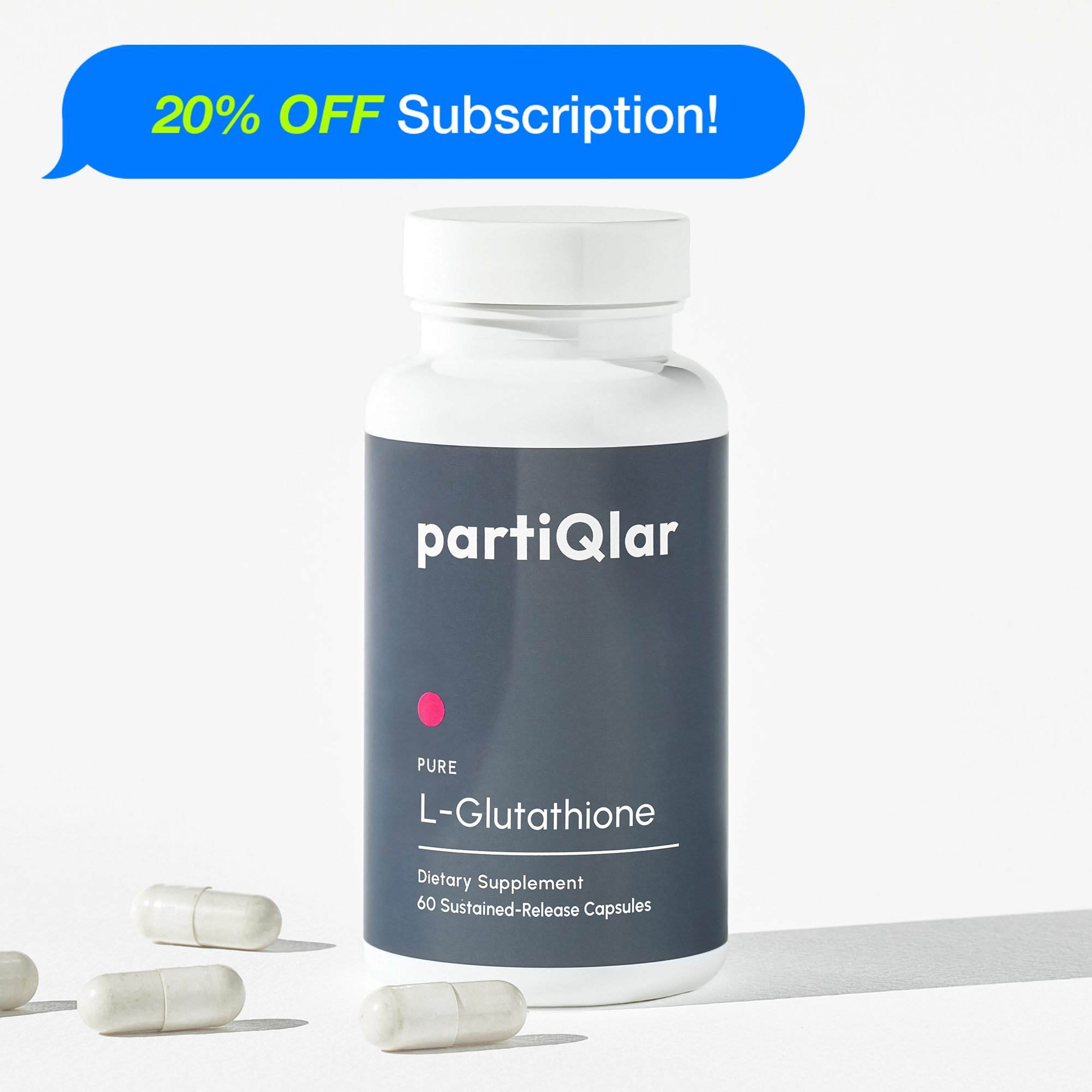Uncover the longevity secrets of centenarians, highlighting common habits that contribute to their long lives. Learn about diet, exercise, social connections, and more to inspire your own journey toward a healthier, longer life.
What is Glutathione? Understanding Its Role in Skin Health, Detoxification, and Longevity
- Science
- November 26, 2024
- Jan Vincent Beltran, PhD

Related Product
Highlights
- Glutathione is a naturally occurring antioxidant composed of three amino acids—glutamine, cysteine, and glycine—primarily made by the liver and essential for various health aspects.
- This “master antioxidant” combats oxidative stress, supports liver detoxification, enhances immune function, supports cellular repair and mitochondrial function, and promotes skin health and anti-aging.
- For skin health, glutathione promotes skin whitening and hyperpigmentation reduction, prevents wrinkles, and boosts elasticity.
- For optimal results, oral glutathione supplements, typically between 250-1,000 mg daily, offer various forms like reduced glutathione and NAC, tailored to individual health needs.

Introduction
Have you ever wondered what keeps our cells protected, our skin looking radiant, and even supports our body’s natural detox processes? Meet glutathione—the “master antioxidant.” Glutathione is a molecule of three amino acids—glutamine, cysteine, and glycine—and is naturally produced by the liver throughout our lives. Think of it as your body’s internal bodyguard, defending cells against oxidative damage, neutralizing toxins, and boosting immune health.
While we make glutathione naturally, factors like aging, stress, poor diet, and exposure to toxins can reduce our levels, leading to various health issues. That’s why, many turn to glutathione supplements to help replenish their body’s reserves.
Here, we’ll dive deep into what glutathione does, explore the array of benefits of glutathione, and discuss how it contributes to skin health, detoxification, and longevity. We’ll also cover different ways to increase glutathione levels naturally, potential side effects, and what happens when you stop taking glutathione.
What Does Glutathione Do? Key Benefits of Glutathione
Glutathione is widely known for its skin-whitening benefits; however, this is just an aesthetic side effect.
Here are the major health benefits of glutathione in the body:
- Powerful Antioxidant Properties
Glutathione’s primary role is as an antioxidant¹. Antioxidants are molecules that fight free radicals—unstable atoms that can damage cells and lead to premature aging, chronic diseases, and even cancer.
Glutathione works by donating electrons to free radicals, stabilizing them before they can harm your cells. Hence, it works like a fire extinguisher, putting out tiny flames of cellular damage before they spread. This unique capability is why glutathione is called the “master antioxidant.” Unlike most antioxidants that we get from food, such as vitamin C and E, glutathione is produced primarily in our liver, within our cells, giving it a special advantage.
- Supports Liver Detoxification and Health
One of the most critical roles of glutathione is to assist the liver in detoxifying the body². When harmful substances like pollutants, heavy metals, or metabolic waste enter the body, the liver uses glutathione to convert these toxins into water-soluble compounds that can be safely excreted.
This process is called “conjugation”³ and without it, toxins would accumulate in our bodies, leading to health issues. By supporting liver function, glutathione helps protect against liver damage. Some studies even suggest that glutathione supplementation could aid in reversing liver damage caused by alcohol or medication overuse, offering a way to reset liver health.
- Enhancing Immune Function
Did you know that glutathione is essential for a well-functioning immune system? Low glutathione levels are associated with immune deficiencies⁴ which can make you more susceptible to infections.
Glutathione supports lymphocytes—white blood cells that are key players in the immune system—helping them to fight off pathogens. So, beyond its antioxidant function, it can stimulate your immune cells, enabling them to respond to infections effectively⁵.
- Cellular Repair and Mitochondrial Support
Glutathione doesn’t just protect cells; it also supports the mitochondria inside them. Mitochondria are known as the “powerhouses” of cells because they produce ATP, the energy currency of life.
With the neutralization of free radicals in the mitochondria⁶, glutathione protects against the oxidative damage directed to mitochondrial membranes, ensures that these little energy-producing engines run smoothly, improving energy production and cellular repair. Healthy mitochondria mean better energy levels, clearer thinking, and even a potentially longer lifespan.
- Skin Health and Anti-Aging Benefits
Many people already know glutathione for its effects on skin health. It works in two major ways⁷: reducing oxidative stress, which leads to aging, and affecting melanin production, which influences skin tone. In this case, glutathione works by inhibiting tyrosinase, an enzyme involved in the formation of melanin, the pigment responsible for skin color.
As a result, glutathione is popular for skin whitening, as it can help reduce pigmentation and dark spots, giving the skin a more even tone. This has made glutathione supplements and creams particularly sought after in skincare.
Glutathione for Skin Health
Glutathione’s skin benefits have made it popular for more than just internal health—many people turn to it for visible improvements in skin tone, texture, and overall radiance.
Here’s a closer look at how it supports skin health from the inside out.
- Skin Whitening and Hyperpigmentation Reduction
So, how exactly does glutathione affect skin color? As mentioned, glutathione inhibits melanin production by blocking tyrosinase⁸ which reduces the formation of dark pigmentation in the skin.
In addition to evening out skin tone, glutathione may also fade blemishes, reduce melasma, or prevent skin rash after sun exposure, making it a favorite for those aiming to achieve a radiant glow. Hence, many people who use glutathione for skin whitening report noticeable “before and after” improvements, with a clearer, brighter complexion.
- Fighting Wrinkles and Boosting Skin Elasticity
Glutathione also helps fight wrinkles and improve skin elasticity. By scavenging free radicals, it slows the breakdown of collagen and elastin—two proteins that keep your skin firm and youthful.
A 2017 study in female subjects given 250 mg/day oral glutathione for 12 weeks has also found significant reduction in wrinkles⁹ as well as a tendency of increasing skin elasticity after glutathione administration, which strengthens the anecdotal reports of many users of glutathione, that reported reduced fine lines with regular use, making it another potent addition to an anti-aging routine.

Different Forms of Glutathione: Which One is Right for You?
With a wide variety of glutathione supplements on the market, you’ll find several forms, each with unique benefits and absorption profiles. Understanding these options can help you decide which form best suits your needs and health goals.
- Reduced Glutathione
Reduced glutathione is the active, bioavailable form commonly found in supplements. “Bioavailable” means it’s easily absorbed and ready to work in your body right away. This makes it one of the best options for those seeking immediate benefits, as it can directly neutralize toxins and combat oxidative stress. Based on a previous study, reduce glutathione can help with acute kidney injury¹⁰, a condition that is increasing over time and is most common in elderly people.
- S-Acetyl Glutathione
This form is a stabilized version that enhances glutathione’s absorption in the body, especially through oral supplementation. S-Acetyl Glutathione has a protective coating that allows it to survive stomach acids¹¹ and reach the bloodstream more effectively. Many find it to be the best glutathione supplement option, particularly if they struggle with digestive absorption.
- NAC (N-Acetyl Cysteine)
NAC is not glutathione itself but is a precursor, meaning it provides the necessary building blocks (cysteine) for the body to produce its own glutathione. NAC glutathione supplements are popular because they stimulate the body’s glutathione production naturally¹². This form is especially beneficial for individuals with low glutathione levels due to chronic illness.
Supplementation Guidelines for Glutathione
If you’re considering adding a glutathione supplement to your routine, there are some key guidelines that help ensure you get the best results. Proper dosage, timing, and dietary habits can all play a role in maximizing the benefits of glutathione.
- Recommended Dosage
Typical recommendations for oral glutathione dosage per day are between 250-1,000 mg. However, needs vary depending on individual health conditions and desired outcomes. It’s generally safe to start with a lower dose and increase gradually, especially if you’re aiming to see effects on skin health.
- When to Take Glutathione for Best Results
Glutathione is best taken on an empty stomach (i.e. at least 30 minutes before a meal or 2 hours after) for optimal absorption, typically first thing in the morning. Some individuals prefer splitting their dose, taking half in the morning and half in the evening. Keep in mind that consistency is key to seeing long-term benefits.
- What to Avoid When Taking Glutathione
When taking glutathione, avoid excessive alcohol consumption, as it depletes glutathione reserves. Additionally, a diet rich in essential nutrients like selenium and vitamin C can help maintain and even boost your glutathione levels.
Natural Sources of Glutathione
Increasing glutathione levels is not limited to supplements; many natural foods and lifestyle practices can boost your body’s glutathione production. Choosing the right foods and making certain lifestyle changes can help support your body’s natural antioxidant defenses.
Glutathione-Rich Foods
While supplements are effective, you can also boost glutathione levels through food. Some foods naturally contain glutathione, while others provide the nutrients needed to produce it.
Here are some top choices that promote glutathione production:
- Sulfur-rich vegetables: Broccoli, cauliflower, Brussels sprouts, and kale contain sulfur compounds that aid glutathione synthesis.
- Protein sources: Lean meats, eggs, and fish are rich in amino acids, particularly cysteine, which supports glutathione production.
- Fruits and vegetables: Spinach, avocados, and asparagus contain glutathione and help increase antioxidant levels.
To increase glutathione naturally, regular exercise, stress management, and reducing exposure to environmental toxins (like pollutants) can help your body maintain higher glutathione levels, beyond diet management.

Safety and Side Effects of Glutathione
Glutathione is generally safe for most people, but as with any supplement, it’s essential to be aware of potential side effects and how your body may respond if you stop taking it.
An important question: is glutathione safe? For most people, glutathione is safe when taken as directed, with few reported side effects. Mild side effects, like stomach discomfort or bloating, may occur in some users, but these are generally short-lived. Glutathione is considered safe for daily use, and many people take it consistently for extended periods.
But, what happens when you stop taking glutathione? If you decide to stop taking glutathione, your body may experience a temporary dip in its antioxidant capacity, especially if you have low levels to start. However, the long-term benefits of prior supplementation don’t necessarily disappear. Your body will continue to produce some glutathione naturally, though likely at a reduced level, depending on factors like age, lifestyle, and diet.
Conclusion
Glutathione is indeed a “master antioxidant” that plays a critical role in maintaining skin health, promoting detoxification, supporting the immune system, and enhancing longevity. Whether you’re looking to improve skin brightness, protect your liver, or simply boost overall wellness, the benefits of glutathione can be profound.
Therefore, by incorporating glutathione supplements, enjoying glutathione-rich foods, and living a health-conscious lifestyle, you can harness the full potential of this powerful molecule for a healthier, more vibrant life.

Frequently Asked Questions (FAQ)
- What Makes Reduced Glutathione Effective?
Reduced glutathione is highly bioavailable, meaning it’s efficiently absorbed and utilized by the body. This form ensures the antioxidant properties are maximized, supporting detoxification processes and cellular health, making it one of the most effective glutathione supplements available.
- Can L-Glutathione Improve Skin Health?
Absolutely. L-glutathione’s powerful antioxidant properties can help reduce wrinkles, enhance skin elasticity, and promote a brighter complexion. This makes it a popular choice in skincare routines, especially for those looking to achieve a youthful, radiant glow.
- How Long Does It Take to See Results?
Noticeable results, especially for skin health and complexion, may appear within a few weeks to a few months. The timeline varies based on individual factors like dosage, lifestyle, and overall health, so patience and consistency are key.
- Can Glutathione Reverse Liver Damage?
Research suggests that glutathione can support liver health by aiding in the repair of liver cells, potentially reversing some damage. However, effects are optimized when combined with a healthy lifestyle, including a balanced diet and limited alcohol intake.
- What is Glutathione Best For?
Glutathione is primarily known for its antioxidant properties, helping to neutralize free radicals. It supports liver health, detoxification, immune function, and skin health, making it a versatile supplement with numerous potential benefits.
- Is It OK to Take Glutathione Every Day?
Yes, taking glutathione daily is generally safe, especially when following recommended dosage guidelines. Regular use helps maintain steady antioxidant levels, supporting overall health, but consult a healthcare provider to ensure it fits your personal health needs.
- What Happens When You Start Taking Glutathione?
Many people experience increased energy levels, clearer skin, and reduced signs of oxidative stress shortly after starting glutathione. These benefits are often due to glutathione’s role in detoxifying the body and protecting cells from damage.
- What Does Glutathione Do for the Brain?
Glutathione acts as an antioxidant in the brain, protecting neurons from oxidative damage. This support is essential for cognitive health and may contribute to reducing risks associated with neurodegenerative diseases, promoting overall brain health and mental clarity.
References
- https://linkinghub.elsevier.com/retrieve/pii/S0083672922000711
- https://pmc.ncbi.nlm.nih.gov/articles/PMC4684116/#sec2
- https://www.ncbi.nlm.nih.gov/books/NBK470290/
- https://pubmed.ncbi.nlm.nih.gov/11115795/
- https://pmc.ncbi.nlm.nih.gov/articles/PMC3048347/
- https://pmc.ncbi.nlm.nih.gov/articles/PMC2821140/
- https://pmc.ncbi.nlm.nih.gov/articles/PMC5413479/
- https://pubmed.ncbi.nlm.nih.gov/27088927/
- https://pubmed.ncbi.nlm.nih.gov/28490897/
- https://pmc.ncbi.nlm.nih.gov/articles/PMC10206672/
- https://www.graphyonline.com/archives/IJCND/2018/IJCND-134/index.php
- https://pmc.ncbi.nlm.nih.gov/articles/PMC10376274/
Explore Products
Related Articles
Discover the power of berberine, a natural compound known for its weight loss and blood sugar control benefits. Learn how it activates metabolism and supports overall health, with practical tips on dosage and supplementation.

Alpha-GPC Unveiled: A Comprehensive Guide to Boosting Brain Health, Memory, and Physical Performance
Discover how Alpha-GPC, a natural compound, boosts acetylcholine levels, enhancing memory, cognition, and athletic performance. Learn its benefits, dosage, and safety in our comprehensive guide.


